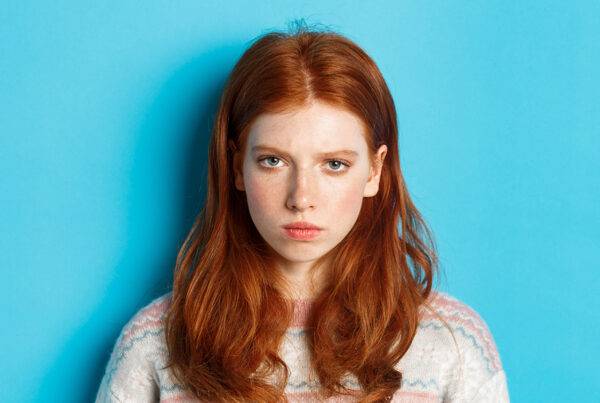Life Lessons from the Dog Beach
By Richard J. Loebl, LCSW, BCD
Hugo is 18 months old and weighs about 30 pounds. He’s our French Bulldog (the breed is also referred to as “Frenchies”). Hugo, like many Frenchies, is a big personality in a small package. He loves people and other dogs, and he’s exceptionally playful and affectionate. Hugo brings us endless, unconditional joy and love – and he’s taught me some important life lessons. Spending time with Hugo is one of my favorite coping skills – he’s a black and white, four-legged, tongue-wagging stress management gift.
About a year ago, we started taking Hugo to the dog beach every Sunday afternoon. We live about 2 miles from the beach in South Florida. I was resistant to the idea at first. Sunday afternoons used to be the time I reserved for completing any weekend chores, and maybe carving out an hour or so to relax. I thought that going to the dog beach would be one more task in my long list of responsibilities and demands. The dog beach required permits and fees, schlepping beach chairs, and cleaning up beach sand after we returned home. But Hugo (and my wife) insisted that we give it a try.
I didn’t like the experience – I totally loved it. When we let Hugo off his leash – about 50 beach yards from the ocean – he took off like a bat out of hell. I’ve never seen a dog run so fast, kicking up clouds of beach sand behind him. Watching his little butt wiggle side-to-side as he scooted toward the water brought a huge smile to my face. I laughed until I cried. Hugo became one of my greatest teachers. He taught me how to appreciate life in an entirely new way.
Hugo’s Life Lessons
- Change your environment – Like many South Florida residents, we rarely go the beach. We live here, work here, and complain about all of the tourists who clog the roads and restaurants during vacation season. After years of summer beach vacations when we lived up north, the thrill was gone. Now we go to the beach every Sunday, and it’s like I never knew what I was missing. Now I see this environment through Hugo’s eyes – it’s a wonderful playground filled with interesting characters. Changing my environment every week is refreshing and invigorating – it changes my point of view and my emotional state.
- Be in the moment – For many years now I’ve practiced and taught mindfulness and various meditative practices. One of the most important functions and benefits of mindfulness is moment-to-moment awareness. Being in the moment allows us to focus and concentrate more clearly, and to appreciate the value of every experience. Hugo is a living example of this Zen-like principle. He is fully engaged in the moment, without a care in the world. Every Sunday he invites me to join him in each precious moment.
- Take a break – Are you in a rut? Are you bored with the “same old” thing? Are you stressed out and overwhelmed by life’s demands? Maybe it’s time to take a break. More specifically, it’s time to prioritize and schedule life-enhancing, rejuvenating activities. I’m not talking about crashing in front of the TV, or escaping into video games or shopping trips. Hugo taught me some unexpected benefits of prioritizing routine, scheduled breaks. These Sunday outings are now a sacred part of our schedule. Our weekly trips to the beach create a true, mentally healthy attitude adjustment.
- Disconnect – Research studies show that the majority of adults spend more time on their mobile devices, computers, and TV than they do in direct connection with other people (even their spouse and children). We see a lot of people who bring their dogs to the beach every Sunday. Rarely do we see them using their phones. It’s like some kind of time warp, taking us back to the days when people interacted without texts, tags, or emojis.
- Reconnect emotionally – I love the way Hugo scampers up the shore line, in hot pursuit of some dog that’s much bigger and faster – and just when we think we need to run after him, he turns around and runs back to us. This happens repeatedly every Sunday. He knows we’re his people. And the connection is emotionally based. Brain science shows us that we are hard-wired for this type of emotional connection (humans and dogs have very similar brain structures). Our limbic system and amygdala react with danger signals to abandonment and loss – and rewards us with pleasurable sensations when we reconnect. This release of oxytocin (the love hormone) is probably the best stress-buster of all time. Hugo is the embodiment of limbic resonance (we literally feel each other emotionally).
- Make new friends – Hugo is my role model. He just runs right up to anybody – a dog or a person – ready to play or to be petted. He’s not self-conscious, and doesn’t worry about rejection or being judged. And if some dog doesn’t like him (all of the people do!), he doesn’t sulk, and he doesn’t take it personally. He just moves on the next animal. It’s what most little kids do before the world teaches them to fear.
- Take risks – We love watching Hugo play with other dogs and run into the surf. He knows his limits (most of the time – he’s still pretty young and a little reckless). He can’t swim – he sinks in the water like a bowling ball. But he’s learned to go as far into the surf as possible – he’s even learned to time the waves crashing into the shore. He seems to be quite fearless (although a big pink inflatable raft gave him pause one time – he froze in his paw prints, letting out his characteristic “woo-woo-wooo”). As I get older, I notice that I’m a little more conservative – a little more risk averse. Sometimes to a fault. I’m working at putting myself into Hugo’s shoes – or paws.
- Appreciate vicarious joy – I’ve always appreciated the value of positive experiences. A loving embrace, beautiful music, a great movie, travel, a good book. Hugo reminds me of raising children. The joy you get from watching them experience new things. Thank you, Hugo, for giving me the gift of vicarious joy. It’s like every week at the beach is brand new – something he’s never done before. His excitement and passion is no less than it was a year ago – after 52 Sundays at the beach. When I’m stressed out or feeling low, all I need to do is to think about Hugo prancing across that beach without a care in the world.
- Be light hearted – (Thank you to one of my clients who talked to me about this today. He’s learning how to get out of his head, and into his heart.) Hugo has the gift of a small cerebral cortex – humans have the gift, and the curse, of a large one. That’s our thinking brain. Hugo never thinks it through at the beach. He just does it – with lots of heart and gusto. I’m thinking (but not too much!) about getting a tattoo with a drawing of Hugo, and the motto “What would Hugo do?”
- Run-Play-Rest – Running is healthy and life-affirming. We run for exercise and we run for survival (running to work every day). Play is for kids and for dogs. And for our inner child. All adults need healthy play – it nourishes and restores our youthful vitality. And then we need to rest. Hugo runs, chases and plays with other dogs, and then he collapses, exhausted, resting until the next opportunity comes along. Thank you, Hugo, for reminding us of our essence – our very nature. I’ll meet you at the beach next Sunday!
If you’d like to see more pictures of Hugo at the beach – or if you want more information about stress management and coping skills – please contact us today.







